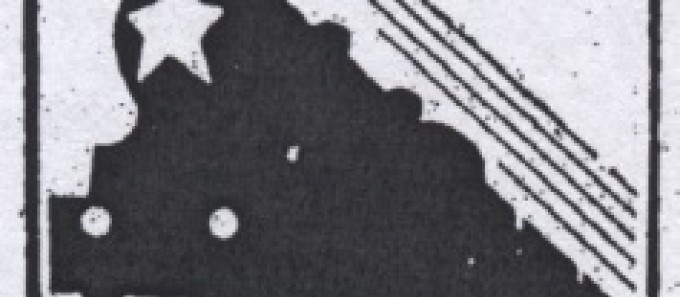- When:
- Wednesday, October 12, 2011, 7:00pm - 7:00pm
- Description:
-
Introduction by Rimma Moiseeva, Deputy Director of The Russian State Archive for Cinema and Photographic Documentation (Krasnogorsk, Russian Federation), and Nikolai Izvolov, Chair of the Department of Cinema History and Theory of the Research Institute for Cinema Art (Moscow, Russian Federation).
In 1967 Chris Marker happened upon Aleksandr Medvedkin’s 1935 film satire Happiness and discovered for the world a lost giant of the Soviet cinema. Further research into Medvedkin’s work led Marker to the “film-train” that Medvedkin had conducted in 1933-1934, in the heady days of the rapid industrialization and collectivization. The thoughtful, inventive and humorous political films of Medvedkin and his comrades not only proved consonant to Marker’s own practice as a film-essayist, but also provided a powerful impulse for Marker’s efforts to encourage insurgent filmmaking at the grass-roots level at a new revolutionary moment. Featuring several films that have rarely, if ever, been shown in the United States, this screening series explores a friendship between filmmakers, exemplifying the powerful yet tenuous intimacy that becomes possible when technological media are adopted for the international struggle for social justice.In part I of the series, Aleksandr Medvedkin's military training film Mind Your Health is followed by a selection of agitational shorts from the "film train," which enhance the documentary mode with imagination and verve. The program culminates with one of Chris Marker's films about the revolutionary turmoil of France in 1968-1969, inspired in part by Medvedkin's film train.
Mind Your Health (Beregi zdorov’e)
(Aleksandr Medvedkin, 1929, DVD, 9min, silent, subtitled)
Medvedkin’s first surviving film explores the fun to be had observing good hygiene.
The Launch of the Dnieper Power Station (Pusk Dneprostroia)
(Anonymous, 1932, DVD, 11min, silent, subtitled)
A celebration of the signal industrial project of the first Five-Year Plan, featuring everyone from old man Kalinin to French author Henri Barbusse.
Letter to Kolkhoz Farmers (Pis’mo kolkhoznikam)
(M. Lifshits, 1932, DVD, 10min, silent, subtitled)
A farmer challenges his comrades to raise production and fight the kulaks who resist the new order.
How Is Life, Comrade Miner? (Kak zhivesh’, tovarishch gorniak?)
(N. N. Karmazinskii, 1932, DVD, 10min, silent, subtitled)
While the managing committee of the Great October Mine discusses and files resolutions, the miners and their families endure squalid living conditions.
A Link of Victory (Zveno pobedy)
(S. Bubrik, 1933, DVD, 14 min, silent, subtitled)
A Cossack village in the north Caucasus region expels its kulaks, who have been blamed for sabotaging the crop, and embarks on a new, Soviet life.
Comrade-Prosecutor (Tovarishch prokuror)
(S. Bubrik, 1933, DVD, 15 min, silent, subtitled)
A children’s parade (featuring a “living poster”) demands a trial of negligent railroad workers and leads to improved performance.
Family (Rodnye)
(G. Piotrovskii , undated, DVD, 8 min, silent, subtitled)
A hero of labor reads a letter from his family and begins to fantasize about how Soviet life will look when his grandson grows up.
Tadjikhon Shadieva
(L. Snezhinskaia, 1934, DVD, 18 min, subtitled)
A female political activist in Uzbekistan’s Ferghana Valley tells the story of her liberation and education.
Class of Conflict (Classe de Lutte)
(Chris Marker, 1969, DVD from 16mm, 37 min, subtitled)
Revisiting the Besançon factory in May 1968, Marker this time focuses on the role of a single female activist, Suzanne Zedet, in the labor struggle.Films courtesy of Moscow Film Archive, ISKRA and Icarus Films.
This film series is part of The Soviet Art Experience, a Chicago-wide showcase exploring the arts of the Soviet Union, in conjunction with The Smart Museum’s exhibition Vision and Communism and Professors Robert Bird and Matthew Jesse Jackson's seminar Vision and Communism at the Franke Institute's Center for Disciplinary Innovation.
- The series is sponsored by The SMART Museum, The Soviet Arts Experience, Arts Council and the Center for East European and Russian/Eurasian Studies.
The Film Train

Logo for Medvedkin's 1930s "film train"